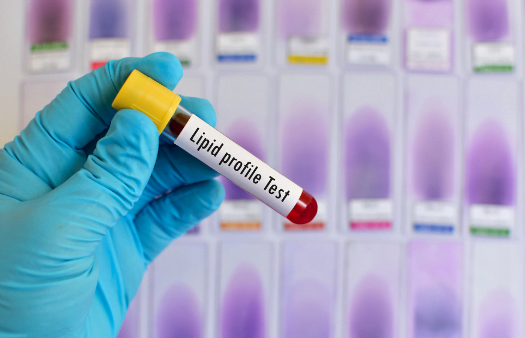Lipid Quality Testing in Animal By-Products
The demand for high-quality animal by-products has been growing steadily due to their versatile applications across various sectors such as pharmaceuticals, cosmetics, and food supplements. Lipids play a crucial role in these products not only for their functional properties but also for their safety and quality assurance. Our lipid quality testing service is specifically designed to address the needs of entities involved in the processing and utilization of animal by-products.
Our service focuses on ensuring that the lipids derived from animal by-products meet stringent international standards, including ISO, ASTM, EN, IEC, and others. This ensures not only compliance with regulatory requirements but also guarantees product quality and safety for end-users. The testing process involves a comprehensive evaluation of lipid content, purity, stability, and other critical parameters.
The testing methodology includes several key steps:
- Sample preparation
- Lipid extraction using appropriate solvents
- Quantification of total lipids using gravimetric or colorimetric methods
- Determination of lipid classes such as triglycerides, phospholipids, and sterols
- Analysis for impurities and contaminants
- Evaluation of oxidative stability through various tests like peroxide value measurement
Our laboratory is equipped with advanced analytical instruments that are suitable for this type of testing. These include high-performance liquid chromatography (HPLC), gas chromatography (GC), and Fourier transform infrared spectroscopy (FTIR). Each instrument is chosen based on its suitability for the specific tests required to assess lipid quality.
The acceptance criteria for our service are set according to international standards such as ISO 21968:2017. These standards ensure that all testing is conducted under controlled conditions and with precision, accuracy, and reproducibility. Compliance with these standards not only enhances the reliability of the test results but also ensures consistency across multiple batches or samples.
Our service caters to a wide range of stakeholders in the healthcare sector, including quality managers, compliance officers, R&D engineers, and procurement specialists. By providing accurate and reliable lipid testing services, we support these professionals in making informed decisions that impact product safety and efficacy.
Scope and Methodology
The scope of our lipid quality testing service is broad and encompasses a variety of parameters critical to assessing the quality of lipids derived from animal by-products. This includes not only the primary components like fatty acids but also secondary constituents that could affect product stability or safety.
- Total lipid content
- Fatty acid composition
- Triglyceride and phospholipid levels
- Sterol content and ratios
- Impurity levels such as free fatty acids, esters, and other contaminants
- Oxidative stability assessment through various methods like peroxide value measurement and thiobarbituric acid-reactive substances (TBARS) assay
- Bioavailability studies where relevant
The methodology we employ involves a series of steps to ensure that each parameter is measured accurately:
- Sampling: Samples are collected from various stages of the processing cycle to capture representative data.
- Preliminary analysis: Initial checks for moisture content and particle size distribution to ensure sample homogeneity.
- Lipid extraction: Depending on the type of lipid, different solvents may be used. For instance, chloroform/methanol mixtures are commonly used for triglycerides.
- Quantification: Total lipid content is determined gravimetrically after drying and weighing the extract.
- Separation and identification: HPLC or GC can separate various lipid classes allowing precise identification.
- Oxidative stability testing: Peroxide value and TBARS assay provide insights into the susceptibility of lipids to oxidation.
All tests are conducted in strict adherence to international standards, ensuring that our results are not only accurate but also universally recognized. This approach helps our clients ensure their products meet regulatory requirements and industry benchmarks.
Industry Applications
The application of lipid quality testing in animal by-products is extensive across multiple industries, each leveraging the unique properties of lipids for specific purposes:
- Pharma & Cosmetics: Lipids are used as excipients and emulsifiers. Ensuring their quality helps in formulating safe and effective products.
- Food Supplements: High-quality lipids can enhance the nutritional profile of supplements, making them more beneficial for consumers.
- Biofuels: The lipid content affects the efficiency and performance of biofuel formulations. Testing is crucial to optimize these properties.
- Cosmetics & Personal Care: Lipids are used as emollients and moisturizers, making their quality critical for product efficacy.
In each application, ensuring that lipids meet the required specifications is paramount. Our service helps manufacturers in these sectors comply with regulations while maintaining product quality.





